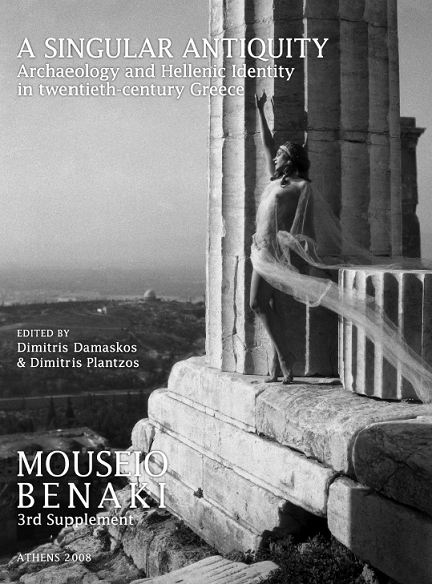To publicise the collections and promote research the Museum has been publishing an annual journal since 2001 (Mouseio Benaki), containing original academic research relating to – or inspired by – objects in its collections or archives, as well as annual reports on the activities of the Museum’s research departments. The journal carries both Greek and foreign-language articles, which are accompanied by abstracts in English or Greek respectively. Given that the Museum’s material is diverse, multicultural and covers a broad time period, the journal thus enhances the dialogue between the disciplines of archaeology, ethnography, social anthropology, museology, history, history of art and the history of architecture.
Announcements
The Benaki Museum journal is now also available online!
2014-04-04
The Benaki Museum has great pleasure in announcing that its journal, which has been published on an annual basis since 2001, is now available in electronic form. The journal Mouseio Benaki has established itself at international level as an academic forum for archaeologists, ethnographers, anthropologists, historians, art historians, museologists and researchers in many other disciplines. The Benaki Museum website has regularly contained the cover, list of contents and abstracts of articles for each issue of the periodical.
2014 marks a new era for the journal: thanks to a collaboration with the National Documentation Centre (EKT), past copies as well as forthcoming issues of Mouseio Benaki, together with its supplements, will be published in print and online, thus making it easily accessible to both the academic community and the general public.
Current Issue
A Singular Antiquity: Archaeology and Hellenic Identity in Twentieth-Century Greece

Published: 2008-01-01
3rd Supplement
Edited by Dimitris Damaskos and Dimitris Plantzos
A Singular Antiquity is an attempt to investigate the ideological strategies, somewhat improvised yet at times quite effective, through which the materiality of Greek archaeology has been employed as the foundation for the metaphysics of Greekness.


